|
National Hispanic Heritage Month takes place September 15th to October 15th every year as a time to recognize and celebrate the many contributions, diverse cultures, and extensive histories of the Latino community. So, in honor of this month, I've made a list some great organizations, groups, and non-profits you can donate to, volunteer with, and are here to help if you or someone you know needs it.
Linked below is my YouTube channel where you can watch the interviews with the listed organizations! My web articles on each organization are also linked with each bullet, there you can also find the organizations personal website and social media.
0 Comments
La Paz Chattanooga is seeking help as they aid migrants passing through the city of Chattanooga seeking asylum. Reports say the bus of migrants were sent from Texas Governor Greg Abbott’s administration. There are also headlines of the republican governor sending those seeking asylum to D.C. and New York as well. Right now, our assistance is needed here in Tennessee. As these individuals are legally seeking asylum, La Paz Chattanooga is performing case management and supplying them with essential items they will need as they continue their journey. As La Paz helps these individuals with their journey, the non-profit is also in need of donations for the asylum seekers. They are accepting the following:
I reached out to La Paz Chattanooga this week, and if you live out of town and would like to send a package, they are accepting those too. However, if you would like to make a monetary donation to help with transportation and lodging, you can click on this link. Before you submit your donation, include "funds for transient migrant travels and lodging" in the comments space. In response to the migrants passing though Chattanooga, the city issued the following statement to a local news provider, saying in part "This administration will respond with compassion to vulnerable people fleeing extremely difficult circumstances."
For more on La Paz, links to their social media pages are below. For their address check out their website here. Project Return is a non-profit that helps provide support for those beginning a new life after incarceration. Right now, they have two locations in Tennessee, one in Nashville and the other in Chattanooga. I spoke to Project Return's Operations Director Corey Richard about how they provide support to those leaving jail or prison. Richard says their primary focus is on employment because if people can work and support themselves they are less likely to go back to prison. Project Return helps individuals by helping them find jobs with either a referral partner, independent search support, or in many cases transitional employment. The non-profit also has hard skill programs, such as construction readiness. With this program, they pay participants a daily stipend, so they are not losing money while learning skills, participants will also receive an OSHA certification and NCCER certification after two weeks. Project Return is also working on a CDL program and is working towards bringing in a computer literacy class, as they help those in the program build up their resume. Project Return also has a high-quality staffing agency. This is where they partner with local businesses to provide staffing in the form of their participants, and also provide transportation to and from those jobs with a fleet of vans that run through the city 24/7. They also take participants their paychecks every week and ensure they have clothing, IDs, food, and other supplies they may need. Their second enterprise, called PROPS, is a property make-ready company where Project Return employs participants directly where they will do commercial cleaning or landscaping. Their last enterprise program, Pro Housing, provides long-term housing for their participants. The non-profit buys a property in a neighborhood, pays its participants to renovate the properties, and rents them out to those in the program for an affordable rate. Operations Director Corey Richard says this program addresses that many landlords will not rent to someone with a felony or criminal record. How do those currently in prison learn about Project Return? Richard says they physically go into the prisons and local jails at least once a quarter. During their visits, they go in with materials about the program, tell people how they can access Project Return, and answer any questions they may have. It's also important to note that right now the state of Tennessee has an incarceration rate of 838 per 100,000 people, which according to Prison Policy, we lock up a higher percentage of people than any democracy on earth. Most of these crimes aren't even criminal offenses, according to Sycamore Institute, property crimes accounted for the largest share of entries to state incarceration in FY 2018. ----------------------------------------------------------------------------------------------------- If you would like to volunteer with Project Return, they have resume development days on Thursday and Friday, you will also conduct practice interviews and coaching. They also have food packing opportunities. Volunteers are also needed to answer phone calls. For more on Project Return follow their social media pages below or head to their website with this link. To watch our interview, click here or scroll to the video below! Healthy and Free Tennessee is an organization with many focuses, the main three are intersections of racism, the criminal legal system, and reproductive justice. They fight for better access to reproductive care for marginalized communities and fight policies that are determined to criminalize reproductive outcomes. In the criminal legal system, Healthy and Free Tennessee work alongside an organization called Free Hearts which is run by formerly incarcerated people, and who also works with formerly incarcerated people. Together, in the most recent session in 2022, they were able to pass the Anti-Shackling Bill, which would prevent the harmful practice of shackling pregnant people while they are in prison. Another bill brought to the state capitol and signed by the governor is Senate Bill 2150, which Introduces TennCare Coverage for doula services. Healthy and Free Tennessee also worked to amend the Medication Abortion Ban, and stop Tennessee's Bounty Hunter Abortion Ban. With a lot of talk in Tennessee over bills that discriminate against women, our undocumented community, the LGBTQ+ community, and people of color, Healthy and Free work to share the most accurate information when it comes to understanding and comprehending these bills. Most are set out to have confusing and hard-to-understand language, which makes it unclear as to what they are doing, and whether it's legal. Because of this, the organization posts slides of easy-to-share information on its Instagram account to spread the message of what is happening in our legislation, and nation, and how we can take a stance against it. Right now many individuals' health and lives are at risk, with the strong possibility of Roe v. Wade becoming overruled. In Tennessee, if it is overturned, abortion will be immediately banned because the state enacted a "trigger law." According to Planned Parenthood, this law makes abortion not only illegal, but also a felony in all circumstances including sexual assault, or incest. Planned Parenthood says providers who handled or attempted to provide an abortion could face prison time and fines, but not the person seeking the abortion. During my conversation with Heather Allison, who is the reproductive justice fellow with Healthy and Free Tennessee, we talked about what our state would look like post-Roe. There will be those who can travel out of state to seek an abortion, however there are many who will not be able to, due to a disability, their job, childcare, immigration status, or criminal status. Healthy and Free TN say they are also preparing for an increase in policies that will criminalize pregnant people, based on the circumstances in other countries where abortion is banned. Right now, they are focused on encouraging healthcare providers to not report their patients who have pregnancy loss and asking district attorney's not to prosecute people for self-managing their abortions. For those who are wanting to learn more about self-managed abortions, Healthy and Free are offering training for that as well. They are also encouraging those who track their menstrual cycle or pregnancy through their cell phones to stop doing so, due to privacy concerns. With Roe v. Wade in danger, those who are experiencing pregnancy loss due to miscarriage will be turned away from life saving-care. Heather Allison says when a patient goes to their doctor, there is no way for the provider to know whether the patient took an abortion pill or suffered a miscarriage. If a doctor suspect's a person had an abortion, they can call the police. Earlier this year Governor Bill Lee signed a bill increasing criminal penalties for anyone distributing abortion medication through telehealth or mail. According to the Tennessean, the bill prohibits any distribution of abortion medication, except when it is done in person, by a physician. However, their doctor is not required to monitor the patient during or after they are given the medication, except for a required follow-up appointment within two weeks. If this is not followed the legislation makes the procedure a Class E felony punishable by a fine of up to $50,000. The FDA approved the delivery and telehealth dispensing of the medication last year. It's also been endorsed by the American College of Obstetricians and Gynecologists as a safe procedure. If you or someone you know wants to learn more about abortion access or self managed abortions, Healthy and Free Tennessee has a section of their website completely dedicated to that, just click the link here. For more on immigrant rights, click this link. To contact Healthy and Free Tennessee you can send them an email with this address: info@healthyandfreetn.org and their socials are linked below.
In 2022, TIRRC Votes received a massive win for immigrants living in Tennessee with the Workforce Expansion Bill. This bill allows more than seven thousand DACA recipients and three thousand TPS Holders to obtain a professional license in many careers, including nursing, cosmetology, contracting, and more. TIRCC Policy Coordinator, Luis Mata, says the campaign for the bill was built and progressed through directly impacted community members. They advocated for the bill to legislatures in the Tennessee House and Senate, along with members of TIRRC Votes, back in January 2022 when legislation was in session. In April, the Legislative Branch passed House Bill 2309. It advanced to Governor Bill Lee's desk, where he signed it into law, creating many opportunities for many people in the community. The effort was bipartisan, the House sponsor was Democratic State Representative Bob Freeman, and the state sponsor was Republican Senator Shane Reeves, so there was support for the bill on both sides of the aisle. Despite this major victory, representatives in Tennessee have tried to pass many unlawful and heinous anti-immigrant laws in the past. We have recently, seen House Bill 2222, which would require the Tennessee office for refugees to, at least quarterly, transmit to the members of the general assembly and the legislative librarian a report of the total number of individuals placed by the office in this state for that quarter, the cost to the office of services provided to the placed individuals, and the communities where the individuals were placed in this state. Another that has made headlines include House Bill 1648 by Bruce Griffey which would have given schools the option to refuse to enroll undocumented students. As well as bar districts from receiving state funds for educating these children, and from counting them in funding requests. Luis says seeing these bills year after year does not deter their mission, because year after year they defeat this legislation, showing the community the power they have as a whole. TIRRC makes sure community members see how much strength they have. For those wanting to learn more about the laws and rights they have, TIRRC has launched a summer series in partnership with the Nashville Public Defender's Office. The "Know Your Rights" outreach consists of evening workshops on the criminal justice and immigration system. All sessions will be in Spanish and English. To register, text the word "Criminal Justice" to 615-212-9860. Along with the Community Info Sessions, TIRRC also offers integration services consisting of English learning classes, family defense (presentations on what to do for potential encounters with local law enforcement and ICE, help with legal screenings and document preparation), help and information for becoming a citizen, and much more. At the end of the day, TIRRC will continue to provide many opportunities for the community and be visible in a place they and others belong. To watch our entire interview visit In Your Community's YouTube here or scroll to the bottom of this page. For volunteer opportunities, click here, or to donate, follow this link. Girls Inc. of Chattanooga is a nonprofit that provides activities and programs for girls ages six through 18. Their mission is to equip and inspire girls to be strong, bold, and smart. CEO Toccora Johnson-Petersen says this equates to girls being healthy, educated, and independent. The program has 80 affiliates across the country. Girls Inc. has in-school, after-school, and seasonal day camp programs for girls in elementary, middle, and high school. The Bookworm Club focuses on literacy for girls in kindergarten through third grade. Another program, called Techno Girl, focuses on the intro to disciplines of steam, science, technology, engineering, art, and math for fourth and fifth grade girls. The Road to College and Career Successes is designed to set girls up for success in high school and college. For a list of others, you can check out the programs page on their website by clicking here. Toccora says they design and create programs to fit the needs of their students. An after-school program or a seasonal camp is based on surveys from the girls and their parents. The camp this year is April the 11th through the 15th and is themed "Garden Girl." That's for girls ages six through 18. They chose this theme by listening to the girls and parents who expressed that they want more information and hands-on activities around food sustainability, agriculture, nutrition, and farm-to-table lifestyle change. The girls will learn about nutrition, self-care, and agriculture. They will also receive hands-on experience in a garden at their new United Methodist Church location. There is a fee of $50, which provides two snacks, a t-shirt, and also admissions for any weekly field trips that they will take. Just last year Girls Inc. hosted its first Back to School drive. According to Toccora they knew their girls were headed back to school in person and wanted to make sure they were equipped with supplies, but also support. So, tutoring centers, Big Brothers Big Sisters, and Erlanger representatives were brought in to talk about how to properly return back to school, in addition to giving them supplies. Working alongside experts in the community allows the girls to thrive inside and outside of the school building. If you would like to help Girls Inc. of Chattanooga's mission, you can make multiple types of donations, including monetary, gifts, buy merch, and more. Toccora invites those who want to donate to volunteer or go on a program tour so that you can see firsthand the interactions between the program staff and participants, and what your money is going towards. If you would like to become a volunteer you can view volunteer opportunities and sign up online, by clicking the link here. Right now the non-profit has one event coming up on May 3rd, their 18th annual Unbought and Unbossed luncheon. Over the years, 150 influential local women have been selected by teen mentees to be paired with mentors. At the luncheon, teen mentees will honor their mentor as Unbought and Unbossed. The luncheon is in recognition of the late Congresswoman Shirley Chisholm, who was the first African American woman to make a serious run for the Democratic nod for President of the United States. Toccora says the late congresswoman always told her constituents that no matter where this political journey took her that she would remain "unbought and unbossed." To find their honoree, the girls choose from leaders and entrepreneurs that community members nominated, who they feel embody those traits of Shirley Chisholm. If you would like to know more about Girls Inc. Chattanooga their social handles are linked below, along with the interview with Toccora, or you can check out their website. Big Brothers Big Sisters of Greater Chattanooga (BBBS) is a member of the largest youth mentoring organization in the United States. They serve 6 counties in the area including Hamilton, Marion, Bradley, Walker, Catoosa, and Dade counties. Executive Director Jessica Whatley says BBBS started with just a community-based program for decades where mentors (Bigs) hang out with their Littles, whether that is going to the park, the movie theater, or a game. This program is more about the time spent together and building the relationship from that bonding. If you are a part of the school-based program, Whatley says mentors can go see their Little at school. From there, they can do a lot of those similar activities, bring them lunch, read books in the school library, play board games. BBBS also has activity boxes at those schools that give Bigs ideas of how to spend time with their Littles. Recently, the non-profit started a school mentor program in partnership with Tyner High School, where Bigs and Littles meet virtually once a week and in person once a month. Another program BBBS has is called Beyond School Walls. This work-based mentoring program partners with local companies so the Littles can interact with a working environment. Middle Schoolers will be able to go to companies like Unum and see the different job opportunities and learn about the workplace to see what's out there in the community. With all of these wonderful programs, how do you volunteer? For the school-based and mentoring progams volunteers have to be over 18 years old. For the community-based program, you have to be over 21 years old. To participate in Beyond Schools Walls you have to be an employer with Unum, City of Chattanooga, Elliot Davis, or United Way. All volunteers will go through an orientation process online, where you can read about the programs, learn more about Bigs and Littles, and the benefits of mentoring. After that, you will go through training, background checks, and once you get through the interview process, you will meet with your Little and their guardian to get to know them and go through some rules and guidelines. But don't worry if you are nervous, because each Big has a match support specialist. This is a person to communicate with to help you with any issues, if you need additional training, ideas, or if there are struggles. Your match support is there to help you know how to deal with things your Little may be going through and how to communicate with them. Another reason for the extra help is for child safety, so they check and make sure the kids are in safe relationships. For more on other programs like Bigs in Blue or how UTC students can get involved check out the full interview listed below or by clicking here. For more information on Big Brothers Big Sisters of Greater Chattanooga, or to volunteer, click here. Supporting local businesses does more than just help Chattanooga's economy. It helps a business owner buy a birthday gift for their loved one, helps pay their rent, allows them to grow, and it makes them happy just doing what they love. And that's just some of what buying local can do, so when you want your next coffee, new accessories, an album or a plant, please shop local.
FOOD:
PLANTS: JEWELRY: JEWLERY & MORE Mini Kitty Designs: Jewelry is amazing, you can also buy signs for your plants, suncatchers, pins, and stickers too! They are really a supporter of equality and human rights. MUSIC: Yellow Racket Records: Is a local record shop located on East Main Street, I've bought from here many times and love this place. There are a ton of records you can go though in the store or you can order online! NON-PROFITS AND ORGANIZATIONS:
PLUS you can always stop by the Chattanooga Market to shop some of these cool places, or check them out on social media! A Step Ahead Chattanooga is a nonprofit organization whose mission is to remove barriers to contraception through education, outreach, and access to free birth control. They serve an 18 region county: 11 counties in Southeast Tennessee, five counties in Georgia, and two in Alabama. Mandy Cowley, executive director of A Step Ahead Chattanooga, says their outreach is done by going out into the community, and building trust and awareness of who they are. Through education, they believe everyone has the right to know how their bodies work, and having that information allows them to make the right decision for themselves concerning contraception. A Step Ahead does not deliver services to free birth control directly. They work with partner clinics, medical clinics, and medical providers in the region. But, how does that work? Mandy says someone needing access to free birth control will contact them, the non-profit then gets some information from the caller through an intake line with highly trained volunteers. Based on that information, and where they are in the region, A Step Ahead finds the best clinic for them. Mandy says the only qualifications for their services are that you must live or go to school in one of the 18 counties they reach. They do not care about insurance status or your income. After they find a clinic that best fits you, they connect you directly to that clinic partner, during your phone conversation with A Step Ahead. The medical provider will then take over to schedule an appointment to get you access to free birth control. At your appointment, they may conduct a pap smear, testing, and general health assessments. Again, A Step Ahead covers anything related to that visit that isn't covered by other means. Mandy says even if you have insurance, they will pay the co-pay or deductibles. If you do not have insurance, they will pay for everything related to the visit, meaning it's totally free. In addition to helping someone access free birth control, they also mail free condoms and other things that help connect people. According to Mandy, sometimes 20-year-olds are still on their parent's insurance, and they do not want them to know they are getting free birth control, or sometimes a person in a domestic violence situation and they do not want their partner to know she is seeking birth control. Mandy says there are a number of reasons sometimes people who do have insurance are not able to access a contraception method that is right for them, and they are able to help. Education is also a core component of A Step Ahead's mission. Right now, they have six health educators on staff, including two part-time bilingual health educators. The educators will do presentations throughout the region, which includes family planning with couples, working with churches, and after-school sex education. Tennessee only teaches abstinence in schools, so kids will have questions and turn to the internet for answers. Mandy says that A Step Ahead would rather provide them with a trusted source with accurate information. She says they work with partner agencies who invite them in, and parents are given information about what sex education is, and they can choose to participate or not. A Step Ahead also focuses a lot on education for parents and guardians. This is for when the parent wants to have that conversation with the children in their lives, but are unsure where to begin, what the information is now, or what their kids are exposed to. So, a presentation is given on how to have those tough talks with kids, so as a parent or guardian they feel equipped to have that conversation on their own. A Step Ahead is also focused on breaking barriers. As mentioned, they have two bilingual educators apart of their team. Mandy says they are currently working on adapting a curriculum that will be predominantly in Spanish and culturally relevant to the Latinx community. She says they know everyone has a different connection to the healthcare system, so being able to meet people where they are, and give them the information will help remove those barriers. Mandy says this was really a byproduct of listening to the community and trying to meet that need. A Step Ahead Chattanooga does have volunteer opportunities with their appointment line. Those who sign up will go through training, and the shifts are just four hours and run from 9 AM-5 PM. The non-profit does welcome donations to support their work since all of their services are at zero cost. If you would like to learn more about different contraception methods, you can find that in our interview at the bottom of the page, along with their social media pages, or if you would like to check out A Step Ahead Chattanooga's website, click here. (Note: There are six A Step Ahead's around the state of Tennessee so if someone you know needs access to free birth control in Tennessee, or if you move out of the region, they are also avaliable elsewhere.) The Chattanooga Trans Liberation Collective (CTLC) is a coalition that provides support to the LGBTQ+ community. CTLC began in 2020 after anti-LGBTQ+ legislation began forming in Tennessee. There are a lot of us out here that do not support those laws. I know there may be a lot of people that are very loud around you that, you know, might tell you that you don't belong, but that's not true, says Hannah Schobert. Hannah Schobert with CTLC says they do not support these restrictive bills and are here to let young people know they are not alone. Hannah says the coalition knows what the trauma feels like, and they want to mitigate the harm that these bills are causing. She says the legislation made them want to take action and do something, so, they threw a rally in Coolidge Park last fall to show support for the transgender community and speak on these laws. One bill that CTLC is keeping an eye on is SB 657. This bill "prohibits a person from providing or facilitating the provision of sexual identity change therapy to a minor who has not yet entered puberty." Once that child hits puberty, there is still a list of things, the teen must do to actually receive sexual identity change therapy. Another bill that cause a lot of controversy in Tennessee, required businesses to post a notice if they allow transgender people to use bathrooms that match their gender identity. During the summer of 2021, the American Civil Liberties Union filed a lawsuit on behalf of two business owners, one being the Sanctuary Performing Arts & Cafe in Chattanooga, to block the law from taking effect. When I spoke to Hannah about the bill, she told me that there has not been an update on the lawsuit. Here at home, Hannah says the Chattanooga Trans Liberation Collective does not have a physical space to meet, but they do connect virtually on Sundays through Zoom. She says if anyone is interested in participating you can reach out on Facebook on Instagram. The coalition hopes to begin regular meetings, where members can talk about things they want to see happen in the community, and Hannah says we should see more events from them in the future. |
AuthorMy name is Jess and I love telling other peoples stories and bringing awareness to the community. Archives
February 2024
Categories |
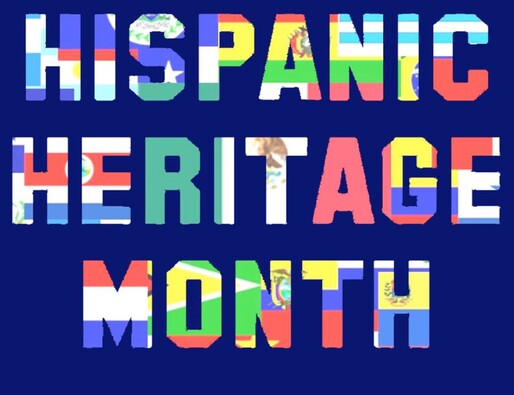
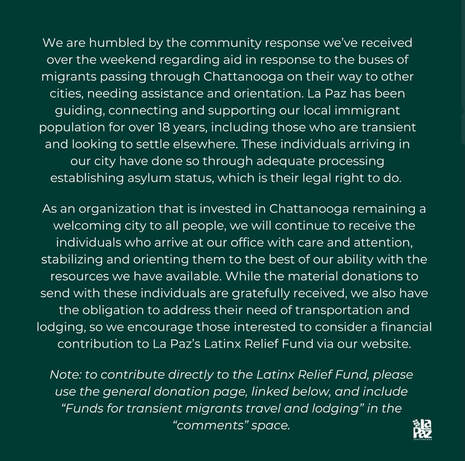




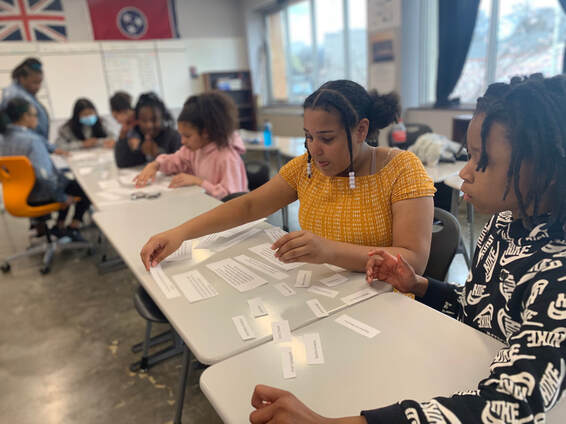


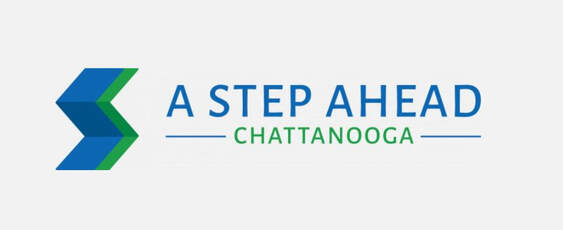
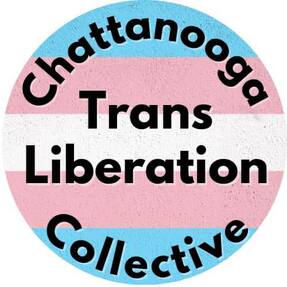
 RSS Feed
RSS Feed